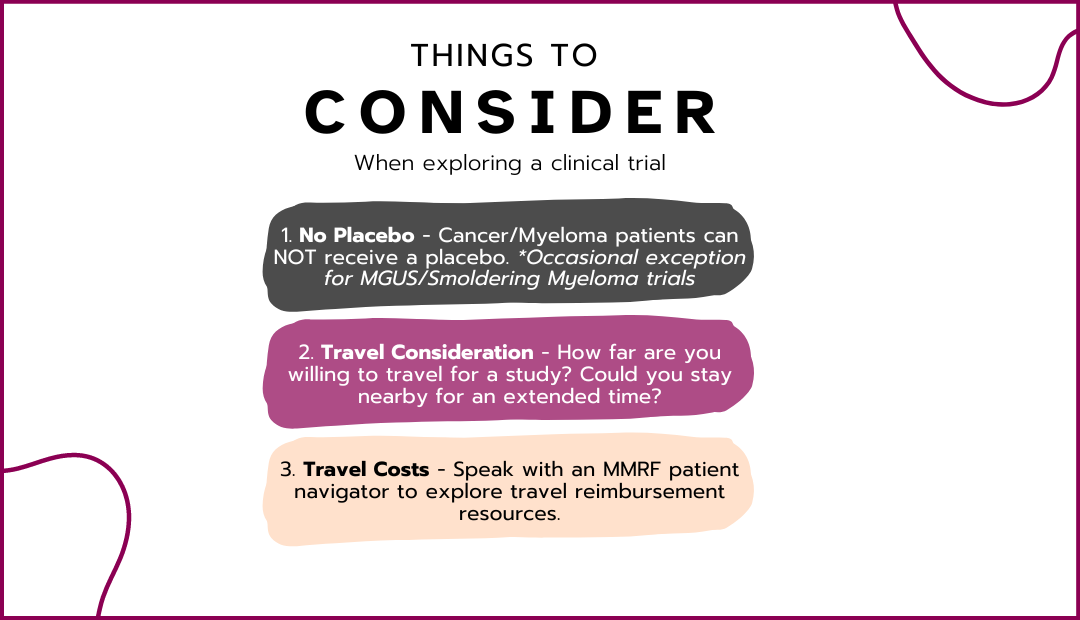Dasatinib and Quercetin With CAR-T Therapy for the Treatment of Patients With Relapsed or Refractory Multiple Myeloma
NCT06940297
Age 18 +
Sex Both
Phase Phase 2
Third Opinion Trial Synopsis
In this clinical study, researchers are exploring a new treatment approach for patients with a specific type of blood cancer. The study focuses on using a combination of therapies to improve patient outcomes. Here are some key details about the study:
- The treatment involves a combination of different medications that target the cancer cells in unique ways.
- It aims to enhance the effectiveness of existing therapies by using a multi-drug approach.
- Patients will be monitored closely to assess how well the treatment works and to identify any side effects.
- This study is unique because it combines therapies that have not been used together before, potentially leading to better results.
- Researchers are particularly interested in how this combination can help patients who have not responded well to standard treatments.
Third Opinion AI Generated Synopsis
Trial Summary
This phase II trial tests how well giving dasatinib and quercetin with cyclophosphamide, fludarabine and chimeric antigen receptor (CAR)-T cell therapy works in treating patients with multiple myeloma that has come back after a period of improvement (relapsed) or that has not responded to previous treatment (refractory). Dasatinib is in a class of medications called tyrosine kinase inhibitors. It works by blocking the action of an abnormal protein that signals cancer cells to multiply, which may help keep cancer cells from growing. Quercetin is a compound found in plants that may prevent multiple myeloma from forming. Chemotherapy such as cyclophosphamide and fludarabine are given to help kill any remaining cancer cells in the body and to prepare the bone marrow for CAR-T therapy. Chimeric antigen receptor T-cell Therapy is a type of treatment in which a patient's T cells (a type of immune system cell) are changed in the laboratory so they will attack cancer cells. T cells are taken from a patient's blood. Then the gene for a special receptor that binds to a certain protein on the patient's cancer cells is added to the T cells in the laboratory. The special receptor is called a chimeric antigen receptor. Large numbers of the CAR T cells are grown in the laboratory and given to the patient by infusion for treatment of certain cancers. Giving dasatinib and quercetin with cyclophosphamide, fludarabine and CAR-T cell therapy may kill more cancer cells in patients with relapsed or refractory multiple myeloma.
This phase II trial tests how well giving dasatinib and quercetin with cyclophosphamide, fludarabine and chimeric antigen receptor (CAR)-T cell therapy works in treating patients with multiple myeloma that has come back after a period of improvement (relapsed) or that has not responded to previous treatment (refractory). Dasatinib is in a class of medications called tyrosine kinase inhibitors. It works by blocking the action of an abnormal protein that signals cancer cells to multiply, which may help keep cancer cells from growing. Quercetin is a compound found in plants that may prevent multiple myeloma from forming. Chemotherapy such as cyclophosphamide and fludarabine are given to help kill any remaining cancer cells in the body and to prepare the bone marrow for CAR-T therapy. Chimeric antigen receptor T-cell Therapy is a type of treatment in which a patient's T cells (a type of immune system cell) are changed in the laboratory so they will attack cancer cells. T cells are taken from a patient's blood. Then the gene for a special receptor that binds to a certain protein on the patient's cancer cells is added to the T cells in the laboratory. The special receptor is called a chimeric antigen receptor. Large numbers of the CAR T cells are grown in the laboratory and given to the patient by infusion for treatment of certain cancers. Giving dasatinib and quercetin with cyclophosphamide, fludarabine and CAR-T cell therapy may kill more cancer cells in patients with relapsed or refractory multiple myeloma.
from ClinicalTrials.gov
Locations & Contact
Fill out the form and to let the Multiple Myeloma Research Foundation know you are interested in this trial.
Contacts:

